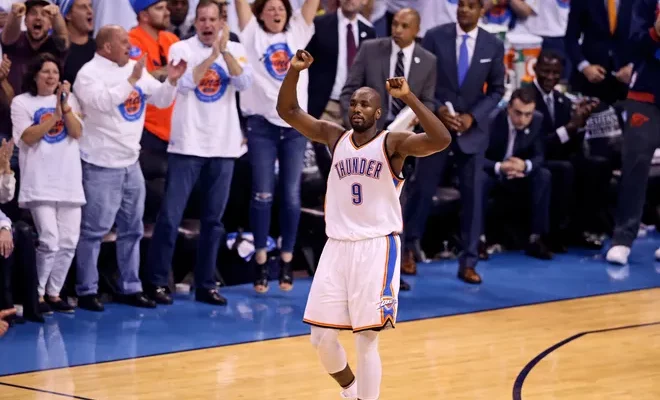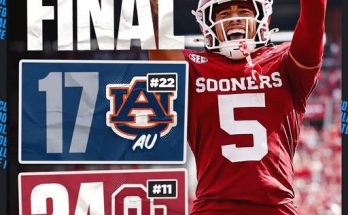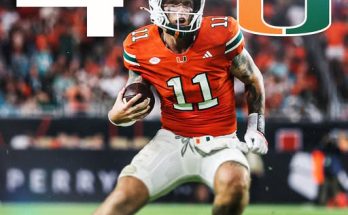In the annals of the NBA, there are few stories more compelling than the saga of the Oklahoma City Thunder. From the heartbreak of a championship-caliber team dissolving to the patient, meticulous rebuild that followed, the franchise has consistently captured the league’s imagination. Now, with a new generation of talent having just secured a title, the conversation has shifted dramatically from “what if” to “what’s next?” In the midst of this euphoria, a familiar and respected voice from the team’s past has chimed in with a powerful endorsement of the future. Serge Ibaka, the shot-blocking dynamo who was a critical component of the original Thunder dynasty that never was, believes the current iteration of the team has a legitimate chance to become something special, perhaps even a long-term dynasty.1
Ibaka’s perspective is particularly poignant given his own history with the franchise. He was a cornerstone of that vaunted young core in the early 2010s alongside Kevin Durant, Russell Westbrook, and James Harden.2 They were a force of nature, a group of young, athletic phenoms who seemed destined for multiple championships.3 That journey, however, was tragically cut short by trades and free-agency decisions that splintered the core. Ibaka himself was a casualty of the team’s eventual reconstruction, traded away in 2016. The lingering “what if” of that team has haunted Thunder fans and the NBA world for years. Ibaka, in a recent interview, reflected on that period, stating that he believes that squad could have won “at least two” championships had they stayed together.4 Yet, he was quick to add the crucial caveat that talent alone does not guarantee success, citing the importance of chemistry, luck, and the unseen work done “behind the door.”5 This historical context provides the bedrock for his current optimism. He is not a casual observer; he is an alumnus who understands the immense pressure and perfect storm of factors required to build and sustain a winner. He sees in this current team a fulfillment of the promise that his own generation couldn’t quite realize.
The new era of the Thunder, led by the MVP Shai Gilgeous-Alexander and his young co-stars Chet Holmgren and Jalen Williams, has already surpassed the first era in one critical respect: they have won an NBA championship.6 This singular achievement, a title that eluded Durant and Westbrook, changes the entire narrative. It validates the patient, asset-driven strategy of general manager Sam Presti and provides a solid foundation from which to build. Ibaka’s belief in this team’s dynasty potential is rooted in several key factors that he knows, from experience, are essential. First and foremost is the age and collective trajectory of the team’s core. Shai Gilgeous-Alexander, at just 27, is a reigning MVP entering his prime.7 Jalen Williams and Chet Holmgren are even younger, with their best years still very much ahead of them. This is not a superteam assembled with aging veterans; this is a homegrown group growing and improving together.8 The organic nature of their development is a stark contrast to the flashier, more immediate superteams that have risen and fallen in recent NBA history. It’s a group that understands each other’s games, having built a camaraderie that has been praised throughout the league. As Ibaka pointed out, chemistry is sometimes more important than raw talent, and the current Thunder squad seems to have it in abundance.
Beyond the star power, the Thunder’s roster is a testament to savvy management. The team has surrounded its stars with an incredibly deep and versatile collection of role players.9 Players like Lu Dort, Alex Caruso, and Cason Wallace provide a defensive intensity that has become the team’s calling card.10 The bench, which was a source of weakness in the original Thunder run, is now a strength, full of young players who can contribute on both ends of the floor. This depth is what allows the Thunder to play their frenetic, hyper-switchable brand of basketball, overwhelming opponents with waves of talented and athletic defenders. Ibaka, a three-time All-Defensive First Team member himself, would certainly appreciate this aspect of the team.11 He knows that in the playoffs, when offensive stars are schemed against and games slow down, defense and depth are what ultimately separate champions from contenders.
Perhaps the most compelling argument for a Thunder dynasty, and something that Ibaka would surely be aware of, is the team’s unprecedented stockpile of future draft picks. Sam Presti has meticulously hoarded draft capital for years, giving the franchise unparalleled flexibility.12 While other contending teams are often forced to “play the minimum game,” scrounging for cheap veterans to fill out their roster, the Thunder have the luxury of continuously replenishing their talent pool with young, cost-controlled players.13 This not only insulates them against the inevitable injuries and departures but also allows them to navigate the complexities of the NBA’s salary cap with a degree of freedom that other franchises can only dream of. The team’s best players—Gilgeous-Alexander, Holmgren, and Williams—are still on team-friendly contracts, but that will change soon as they become eligible for massive extensions. This is where the draft capital becomes a crucial piece of the dynasty puzzle, allowing the team to either draft new, cheap talent or use the picks as assets in a trade for a player who fits a specific need.14 Ibaka’s former team faced a similar financial crunch with Harden, which ultimately led to the breakup. The current Thunder, however, are far better equipped to manage these difficult decisions, giving them a much clearer path to long-term success.
The road to a dynasty is, of course, fraught with peril. As Ibaka himself noted, luck plays a significant role. The untimely injuries to key players like Russell Westbrook and Ibaka himself were major roadblocks for the original Thunder team.15 The current squad has already had its own brush with fate, with Chet Holmgren missing his entire rookie season due to a foot injury, and a mid-season hip injury in 2024-25.16 While the team was able to overcome it, it’s a stark reminder that perfect health is never a guarantee. The league is also in a constant state of flux. Rivals will rise, new superstars will emerge, and teams will retool to challenge the champions. The Western Conference, in particular, remains a gauntlet, with perennial contenders and promising young teams looking to knock the Thunder off their perch. The newly-acquired superstar talents on other teams, for instance, pose significant threats. The Thunder’s ability to maintain their dominance will depend on their young core continuing to improve and their management’s ability to adapt to a changing NBA landscape.
Ultimately, Serge Ibaka’s comments are more than just a passing remark; they are a deep and thoughtful reflection on what it takes to win in the NBA. He witnessed firsthand the incredible potential of a young, talented team and the heartbreaking fragility of that dream. He now sees a new generation in Oklahoma City, a team that seems to have learned from the past and built a foundation not just on talent, but on chemistry, depth, and foresight. His belief in their potential is a powerful endorsement, coming from a player who knows all too well the difference between a team that could have been a dynasty and one that might just become one. The Thunder’s first championship is in the books, but as Ibaka suggests, it may just be the beginning of a much grander story.



